September eNews
Consultation on Enhancing Women’s Political Participation in Bhutan
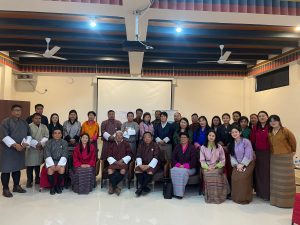
A two-day consultation workshop meeting on “Enhancing Women’s Political Participation in Bhutan” was held from 19- 20 September. It brought together local government (LG) leaders from Punakha, and women leaders from Paro and Thimphu. The meet aimed to explore the unique challenges faced by women in politics, from a gender perspective, and was attended by a mixed group of both male and female LG leaders. The group deliberated on social and cultural norms, the opportunities and challenges women faced, and existing and emerging perceptions about female representation in politics at decision-making levels.
The participants highlighted the need for action in enhancing voter education and awareness, alongside interventions to increase women’s political participation both at the local and at national level. Discussions raised concerns about the perceived gaps and limitations of existing policies and regulatory instruments, calling for a review to identify make necessary amendments.
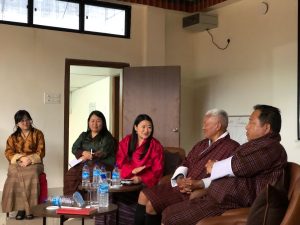 .
. 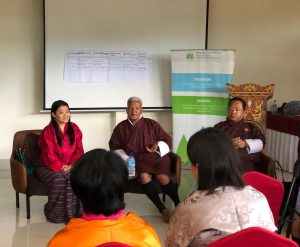
There was consensus that women’s low participation in politics could be due to absence of influential women role models within communities that could encourage women and young girls to step forward for leadership roles. This was perceived to further affect in terms of lower confidence among women to stand for elections and take up decision making roles. Voter behaviour, including societal preferences for male leadership, was identified as a key challenge, underlining the urgent need for awareness and advocacy at the community level to break down existing stereotypes before this became deeply rooted culturally thereby thwarting a balanced or acceptable gender representation in the political sphere. Such developments if left unattended can be anticipated to be policy deliberations being non-inclusive and thereby missing out on the opportunity for diverse representations, views and solutions. Policy discourse therefore may be inadequate to capture fully the development needs of the society and communities, thereby affecting policy and decision-making outcomes and inclusive and sustainable good governance in the long run.
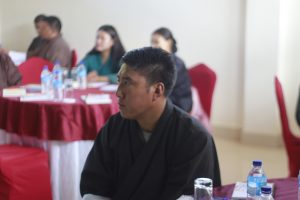
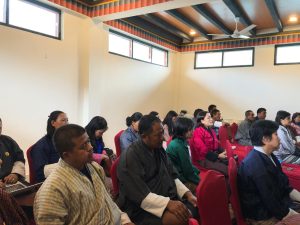
Capacity development in areas like presentation, communication, networking, negotiation, planning, budgeting, and digital skills was seen as essential for empowering local leaders, particularly women. The consultation was also attended by key officials from the Parliament and government, including Hon’ble Member of Parliament , the Election Commission of Bhutan and the National Commission for Women and Children. The officials from the Centre engaged with the participants to discuss the issues and opportunities to promote women’s political participation at a critical juncture when female representation has been declining and at its lowest till date, in order to foster an inclusive democracy in Bhutan.
BCMD takes this opportunity to thank the Canadian Fund for Local Initiative (CFLI) for the support that has enabled the centre to organise this important initiative.
Project Impact Assessment for South Asia Grants Program Phase II
On September 24, 2024, The Centre welcomed officials from The Asia Foundation (TAF) and two consultants, to conduct the final impact assessment of Phase II of the successfully completed South Asia Grants Programme (SAGP). Phase II of the programme was guided by the following three key objectives:
- To provide flexible and responsive funding and programmatic support aimed at deepening Civil Society Organisations’ (CSO) engagement in governance-related work.
- To facilitate the formation of CSO coalitions around three thematic areas: i) countering disinformation, ii) environmental governance, and iii) promoting gender equality and social inclusion.
- To enhance the functional capacities of CSO grantees who have undergone the Organisational Capacity Assessment (OCA) in Phase I, empowering them to lead regional coalitions effectively.
SAGP Phase II encompassed 12 partner organisations – eight from Nepal and four from Bhutan – each focusing on specific objectives aligned with the programme’s overall mission.
The primary aim of BCMD’s final impact assessment was to evaluate both the outcomes and long-term impacts of interventions implemented under Phase II of the project, Strengthening the Capacity of Local Government for Inclusive and Participatory Planning, spanning from January 2023 to December 2024. This assessment sought to systematically document BCMD’s progress toward achieving the project’s objectives, critically analyse the effectiveness of the coalitions established within the framework, and offer insights into the sustainability of these initiatives.
Additionally, the evaluation examined the challenges encountered throughout the project, identified lessons learned, and explored potential opportunities for scaling up successful strategies in future iterations of the initiative.
